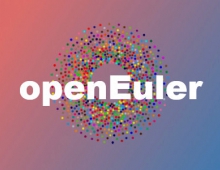
Linux kernel upgraded
Linus Torvalds, the creator of Linux computer operating system, has released Version 2.6.12 of the Linux kernel, including support for Trusted Platform Modules (TPM), significant changes to many drivers and other features.
The revision arrives more than three months after Version 2.6.11 and is the first
release since Torvalds switched to a different system for managing the kernel source
code, a move that slowed development. The 2.6 kernel was introduced in late-2003,
succeeding the 2.4 kernel and bringing in a number of improvements aimed at large
companies.
The latest version introduces a driver for TPM chips such as those found in some IBM laptops; the TPM is designed as a hardware safeguard for critical data such as passwords. The driver supports TPM devices from National Semiconductor and Atmel.
Improvements have been made to IPv6, SELinux, the Software Suspend feature and the device mapper. A feature called address space randomization is designed to help block the effectiveness of viruses. A number of drivers, such as those for USB devices, networks and sound chips, have had major updates, and modifications have been made to the CIFS, JFS and XFS file systems.
In April, Torvalds decided to part ways with the BitKeeper software he had been using to manage the kernel source code since 2002, after a conflict over BitKeeper's proprietary nature. He first reverted to managing updates via e-mail and later in April launched the Git project as a substitute for BitKeeper.
Git is more efficient than e-mail but isn't compatible with BitKeeper, which created some difficulties for those converting to the new system.
The latest version introduces a driver for TPM chips such as those found in some IBM laptops; the TPM is designed as a hardware safeguard for critical data such as passwords. The driver supports TPM devices from National Semiconductor and Atmel.
Improvements have been made to IPv6, SELinux, the Software Suspend feature and the device mapper. A feature called address space randomization is designed to help block the effectiveness of viruses. A number of drivers, such as those for USB devices, networks and sound chips, have had major updates, and modifications have been made to the CIFS, JFS and XFS file systems.
In April, Torvalds decided to part ways with the BitKeeper software he had been using to manage the kernel source code since 2002, after a conflict over BitKeeper's proprietary nature. He first reverted to managing updates via e-mail and later in April launched the Git project as a substitute for BitKeeper.
Git is more efficient than e-mail but isn't compatible with BitKeeper, which created some difficulties for those converting to the new system.





















